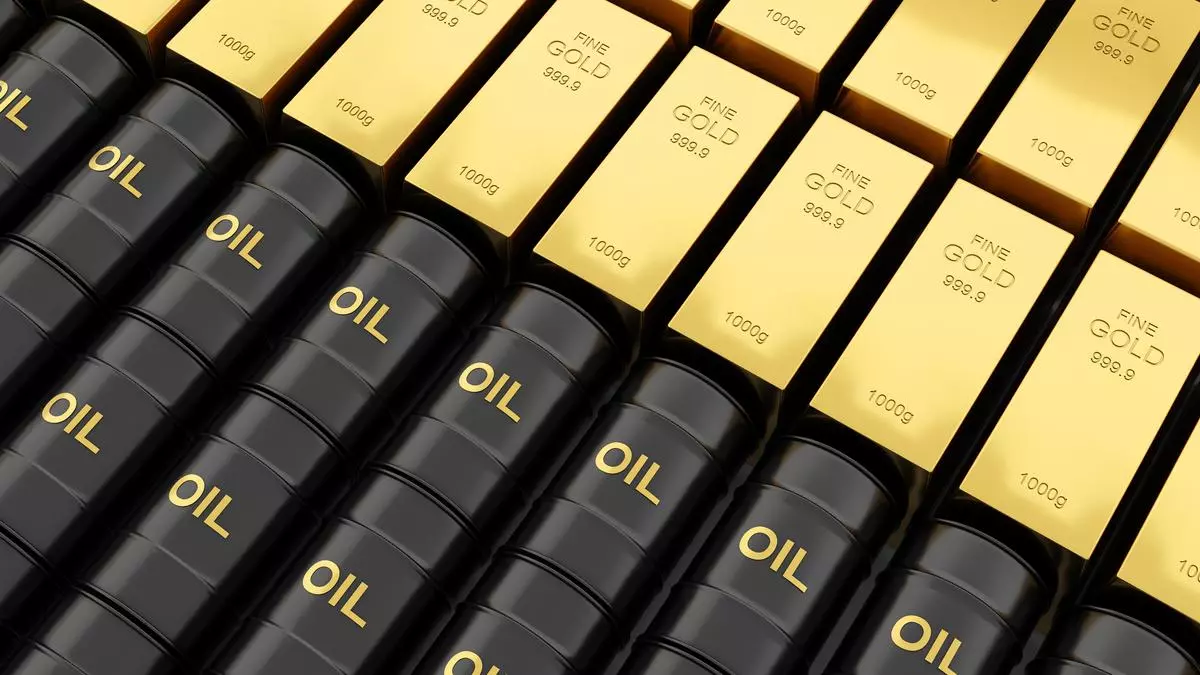Crude oil futures traded lower on Tuesday morning after the US agreed to postpone its decision to impose tariffs on Canada and Mexico by a month.
At 9.56 am on Tuesday, April Brent oil futures were at $75.51, down by 0.59 per cent, and March crude oil futures on WTI (West Texas Intermediate) were at $72.31, down by 1.16 per cent.
February crude oil futures were trading at ₹6307 on Multi Commodity Exchange (MCX) during the initial hour of trading on Tuesday against the previous close of ₹6334, down by 0.43 per cent, and March futures were trading at ₹6281 against the previous close of ₹6300, down by 0.30 per cent.
The US decision to delay tariffs on Canada and Mexico followed after the Prime Minister of Canada and the President of Mexico agreed to strengthen border enforcement following the concerns by the US President, Donald Trump, over immigration and drug smuggling.
Trump had imposed 25 per cent tariffs on imports from Canada and Mexico, and 10 per cent on imports from China on Saturday. He had imposed 10 per cent tariff on energy imports from Canada, and 25 per cent on energy imports from Mexico. Trump said he would speak to China soon on the tariff.
In their Commodities Feed for Tuesday, Warren Patterson, Head of Commodities Strategy of ING Think, and Ewa Manthey, Commodities Strategist, said it would be wise for Canada to start investing in further pipeline capacity from its producing regions to its east and west coasts. It would take several years to build this infrastructure, but it would provide Canadian producers more flexibility and the potential for more destinations for Canadian oil. “At the moment, given that the bulk of pipeline infrastructure is directed towards the US, Canada is left vulnerable to trade frictions,” they said.
Meanwhile, Monday’s meeting of the Organization of the Petroleum Exporting Countries and its allies, commonly known as OPEC+, did not announce any change in the output policy, despite Trump’s call to the group to lower crude oil prices by increasing production output of the commodity.
ING Think’s Commodities Feed said Joint Ministerial Monitoring Committee (JMMC) meeting of OPEC+ on Monday recommended no change to its output policy. This suggests that the group is likely to go ahead with the unwinding of its additional voluntary supply cuts from April. The group is scheduled to bring back around 2.2 million barrels a day of supply over an 18-month period starting in April. Obviously, the return of this supply will still be dependent on market conditions. The next JMMC meeting will be held on April 5.
Quoting a Bloomberg survey, it said preliminary production numbers show that OPEC production fell by 70,000 barrels a day month-on-month 27.03 million barrels a day in January. Iraq led the declines, with its output falling by 110,000 barrels a day to 4.01 million barrels a day. This reduction was largely due to a fire at the Rumaila oilfield, it said.
February zinc futures were trading at ₹268.15 on MCX during the initial hour of trading on Tuesday against the previous close of ₹267.15, up by 0.37 per cent.
On the National Commodities and Derivatives Exchange (NCDEX), March jeera contracts were trading at ₹21300 in the initial hour of trading on Tuesday against the previous close of ₹21195, up by 0.50 per cent.
April kapas futures were trading at ₹1469.5 on NCDEX in the initial hour of trading on Tuesday against the previous close of ₹1463, up by 0.44 per cent.
